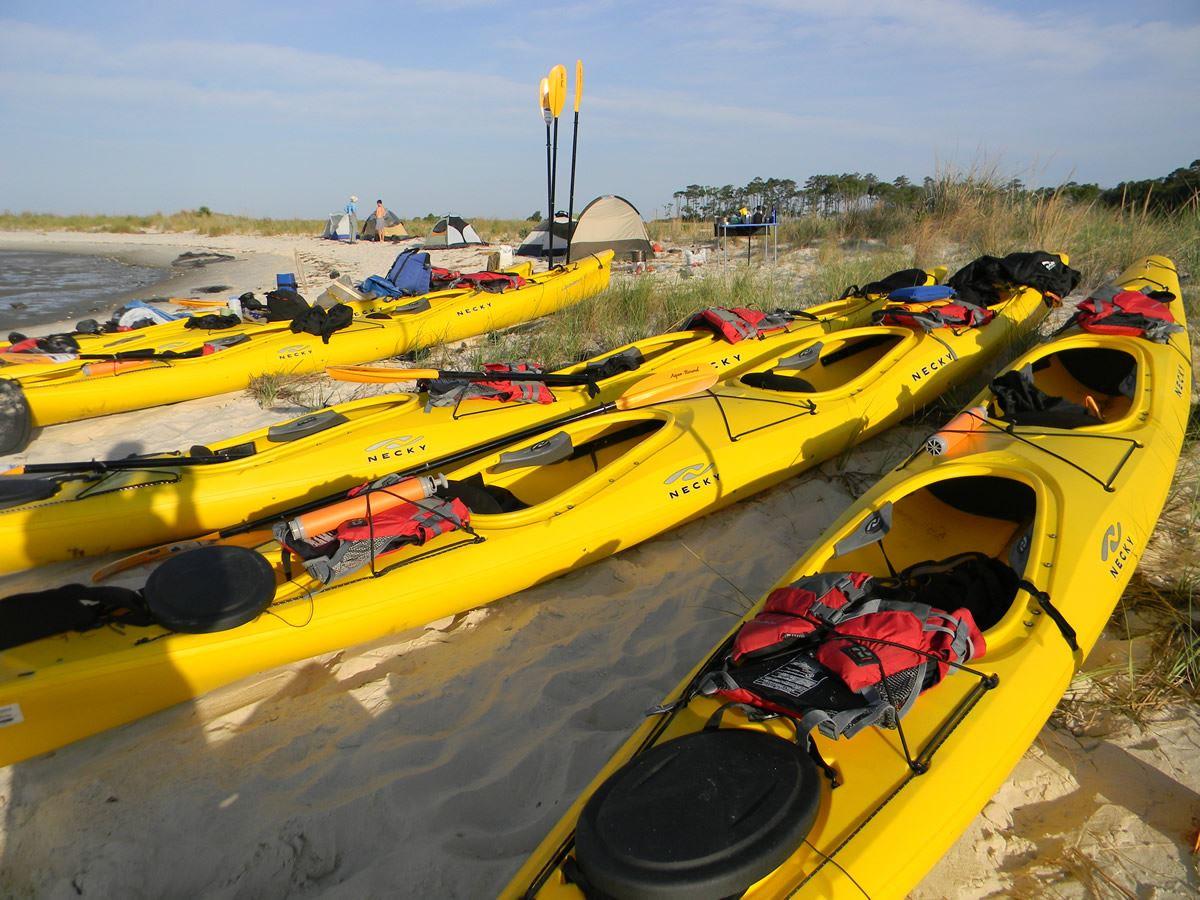
Each summer our department hosts a course that really puts the “environment” into Environmental Studies: Kayaking Delmarva. This course gives students an opportunity to experience the Delmarva Peninsula as never before: traveling by kayak along some of the wildest and most scenic areas remaining in the mid-Atlantic, through landscapes that still resemble what Captain John Smith saw during his explorations 400 years ago, and camping along the way. Participants explore pristine rivers, watermen’s communities, and remote barrier islands, and spend time with naturalists, environmental organizations, and visit research labs. We dine on crab cakes and fresh-caught fish, sample oysters and Smith Island eight-layer cakes, and gain an in-depth understanding of the ecology, culture, history, and politics of Delmarva.
The class is actually composed of two-3 credit courses: ENVR 460 Chesapeake Bay Topics and ENVR 495 Environmental Field Studies. As a result, students receive six credits, fulfilling the experiential component of the ENVR major and gaining an ENVR humanities elective. More importantly, they acquire the self-confidence that comes from taking care of themselves outdoors and the deep appreciation that comes from exploring wild landscapes under their own power.
This course starts in late May and runs through early July. Generally, the first week focuses on the upper Chesapeake Bay and Delaware Bay; week two explores Virginia’s Atlantic barrier islands, week three follows the Nanticoke River, and week four is a capstone experience out on the islands of the Chesapeake. During the final week students create and present their final projects. We return to ¾ÅÐãÖ±²¥ each weekend to recuperate between trips.
The course is limited 12 students and fills quickly. Students must be in the junior or senior year and submit a personal statement and character reference from a SU professor as part of enrollment. Total cost, which includes tuition & fees, will be approximately $2800 (depending upon final arrangements, which are made in Spring).